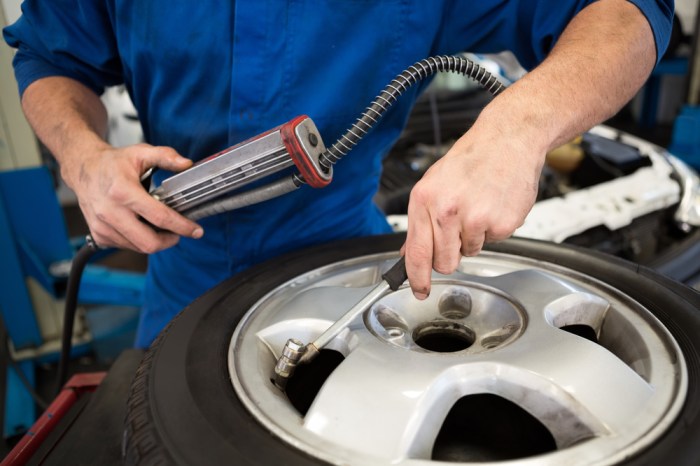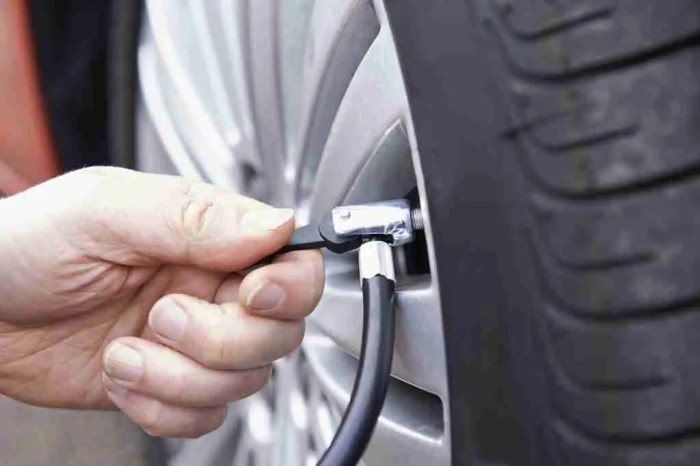Properly inflated tires are important for – Properly inflated tires are paramount for optimal vehicle performance, safety, and tire longevity. Maintaining correct tire pressure is crucial to ensure a smooth and safe driving experience, while also maximizing fuel efficiency and reducing environmental impact.
This comprehensive guide explores the multifaceted benefits of properly inflated tires, providing insights into their impact on handling, fuel consumption, tire life, safety, and emissions.
Properly Inflated Tires: Ensuring Optimal Vehicle Performance and Safety

Maintaining proper tire inflation is crucial for maximizing vehicle handling, fuel efficiency, tire life, safety, and environmental impact. Properly inflated tires provide numerous benefits, including enhanced steering responsiveness, reduced rolling resistance, extended tire lifespan, improved braking performance, and reduced emissions.
Improved Vehicle Handling
Properly inflated tires enhance vehicle handling by providing optimal contact with the road surface. This ensures precise steering responsiveness, allowing drivers to navigate curves and corners with greater control and stability. Underinflated tires have a larger contact patch, which increases friction and impairs steering precision.
Conversely, overinflated tires have a smaller contact patch, reducing traction and stability, especially on wet or icy surfaces.
Increased Fuel Efficiency, Properly inflated tires are important for
Properly inflated tires reduce rolling resistance, which is the force that opposes the forward motion of a vehicle. By minimizing rolling resistance, properly inflated tires allow vehicles to travel farther on the same amount of fuel. Studies have shown that underinflated tires can increase rolling resistance by up to 10%, leading to significant fuel wastage.
Maintaining optimal tire pressure can improve fuel economy by 3-5%, resulting in substantial cost savings over time.
Extended Tire Life
Properly inflated tires experience even wear, extending their lifespan. Underinflated tires have a larger contact patch, which causes the outer edges of the tire to wear prematurely. Overinflated tires have a smaller contact patch, resulting in increased wear in the center of the tire.
Maintaining proper tire pressure ensures even wear, maximizing tire life and reducing the frequency of tire replacements.
Enhanced Safety
Properly inflated tires improve braking performance and reduce the risk of accidents. Tires with the correct pressure provide optimal grip on the road surface, allowing vehicles to stop more quickly in emergency situations. Underinflated tires have a larger contact patch, which reduces traction and braking effectiveness.
Overinflated tires have a smaller contact patch, limiting the tire’s ability to grip the road surface.
Reduced Emissions
Properly inflated tires contribute to reduced vehicle emissions. Underinflated tires increase rolling resistance, which requires more energy to propel the vehicle forward. This increased energy consumption leads to higher fuel consumption and, consequently, increased emissions. Maintaining proper tire pressure reduces rolling resistance, improving fuel efficiency and lowering emissions.
User Queries: Properly Inflated Tires Are Important For
Why is maintaining proper tire pressure important?
Proper tire pressure ensures optimal handling, fuel efficiency, tire life, safety, and reduced emissions.
How does tire pressure affect handling?
Properly inflated tires enhance steering responsiveness and stability, while underinflated or overinflated tires can negatively impact handling.
How does tire pressure impact fuel efficiency?
Underinflated tires increase rolling resistance, reducing fuel economy, while properly inflated tires minimize rolling resistance, improving fuel efficiency.
How does tire pressure affect tire life?
Properly inflated tires reduce uneven wear, extending their lifespan, while underinflation or overinflation can lead to premature tire failure.


